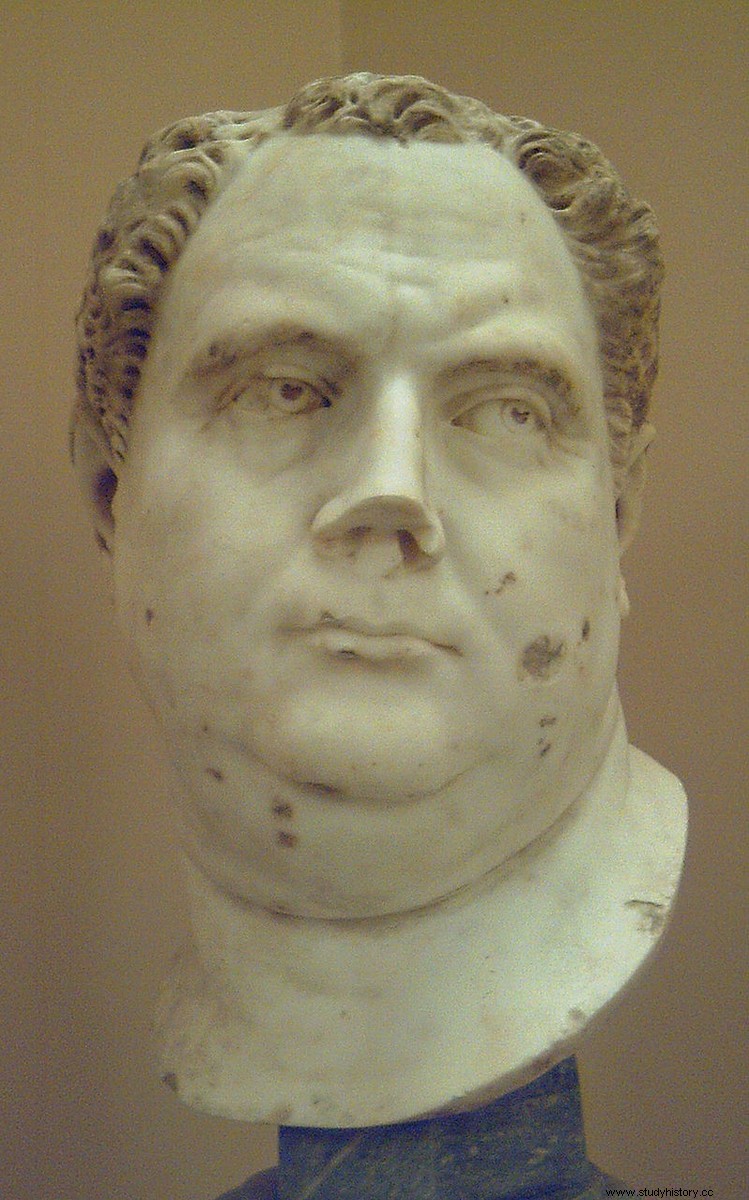
In Latin, "Vitellius" seems to be correct because it doesn't pronounce Babibbebo, but in this blog, it is pronounced Minerva or Nerva as much as possible, so I chose Vitellius.
After the death of Emperor Nero, the so-called three emperor era will come, in which three emperors will die in one year, but Vitterius will be the last one of those three emperor eras.
Governor of Rome's strongest Germanian corps
Rome's potential enemy is Persian and Germanic from the beginning to the end of the empire. Persia is still good because it was a civilized dynasty such as the Parthians and Sassanid dynasties, but the Germanic people were disorganized and could not negotiate because they were divided into several tribes. As he repeatedly returned, it was necessary to deploy the strongest army of the empire to defend it.
Vitterius leads his strongest army, whose official name is Aurus Vitterius Germanicus.
In Rome, the real name is often the real name. For example, Caesar, which means emperor in the imperial government and later generations, was originally a Carthaginian word for "elephant", and it became the family name because it was active like an elephant during the Punic Wars.
Vitellius is nicknamed Germanicus, which means the one who controlled Germania, but unlike Germanicus in the early days of the Empire, it was almost incompetent.
He was assigned to Germania during the Galva era, even when he was afraid that the Germanian corps would turn to his enemies, and even sent him because he would be relieved if he was an incompetent commander, Vitellius, in the unlikely event of an enemy. There is.
I don't know if that's true, but Galva's support base was weak, and it wasn't strange.
In fact, the Germanian army refused to be loyal to Galva and marched to Rome with Vitterius.
Galva himself nominated Piso, who was popular with his successor, but this caused Oto's wrath, and Oto assassinated Galva and Piso, became emperor himself, and summoned the Donau army to prepare for the fight against Vitellius. rice field.
The two armies actually fought in the land of Bedriakum in northern Italy, where the army went up to Vitterius, who heads the Germanian army.
The content of the battle seems to be poor, and it seems that the battle between incompetent commanders ends with great damage to each other.
At this time, Vitterius may not have known that he would be resented for his insulting treatment of the Donau Corps and would later be revenge.
Republican hero Caesar forgave the hostile Pompey soldiers and not despise his own soldiers. They are the same Roman citizens, even if they are hostile.
But Vitterius is neither a hero nor anything. He just happened to be there in that position.
After this, Oto chose to commit suicide, and Vitterius became emperor.
Emperor Vitterius
Vitterius was an emperor who was completely incompetent, as Galva expected.
He was just playing as soon as he became emperor.
He didn't see the gladiator's spectacle, eat delicious food, sleep well, or do any work.
That might be forgiven for Kojikoji, but not for the Roman emperor.
Vitterius, who lost the confrontation with Primus, who had marched to Rome in place of Vespasian, who was in the process of suppressing the Jewish War in Syria, was captured and his body was thrown into the river.
Personal evaluation of Vitterius
He is not a person who deserves evaluation.
Vitterius was a master of sesame seeds, and he was good at getting into a position. He is the type of person I personally hate the most.
There was no trial that this kind of human being was capable, and Vitterius was a typical example.
It can be said that all the turmoil in Rome at that time is reflected in the fact that such a person becomes the Roman emperor.
